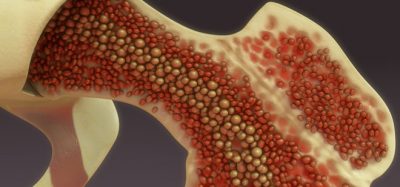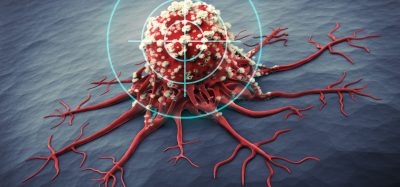Rheumatoid arthritis discovery may lead to novel inflammation blockers
Posted: 24 November 2021 | Anna Begley (Drug Target Review) | No comments yet
A new study links tumour necrosis factor seen in rheumatoid arthritis with T cell dysfunction, potentially leading to new therapies.


A team at the Mayo Clinic, US, have linked the T cell dysfunction seen in rheumatoid arthritis with a metabolic deficiency, potentially leading to new inflammation blockers for rheumatoid arthritis.
According to the researchers, in “helper” T cells from patients with rheumatoid arthritis, low levels of a specific amino acid lead to cellular miscommunication, but supplying it may provide a new therapeutic strategy for autoimmune disease. Rheumatoid arthritis is characterised by chronic inflammation, including high levels of a cytokine called tumour necrosis factor, or TNF, that used to recruit immune system resources and can cause necrosis.
Based on data collected over more than 20 years of work, the team began investigating helper T cells. While they coordinate immune response, they also can remain in the body after infection to help the immune system respond more quickly should the invader return.”Unfortunately, these T cells can also memorise their own mistakes, and in patients with rheumatoid arthritis, they lead the attack against the joints,” explained Dr Cornelia Weyand who led the study, published in Nature Immunology.
Biomarkers aren’t just supporting drug discovery – they’re driving it
FREE market report
From smarter trials to faster insights, this report unpacks the science, strategy and real-world impact behind the next generation of precision therapies.
What you’ll unlock:
- How biomarkers are guiding dose selection and early efficacy decisions in complex trials
- Why multi-omics, liquid biopsy and digital tools are redefining the discovery process
- What makes lab data regulatory-ready and why alignment matters from day one
Explore how biomarkers are shaping early drug development
Access the full report – it’s free!
The researchers found that T cells are a significant source of TNF in rheumatoid arthritis patients. They then turned to cell and mouse models to determine why and eventually discovered that the T cells had a defect in their mitochondria.
“We made the observations that T cells from patients with rheumatoid arthritis have low-performing mitochondria, and by screening the cells for their mitochondrial products, we found that the rheumatoid arthritis T cells lack the amino acid aspartate,” commented Weyand.
Through a series of experiments, the researchers also discovered that aspartate acts as a messenger between the mitochondria and the endoplasmic reticulum. When mitochondria decrease aspartate communication with the endoplasmic reticulum, that organelle assumes the mitochondria are under stress. The endoplasmic reticulum begins to expand and overproduce proteins in response, one of which is TNF. “In essence, TNF hyperproduction is a result of a metabolic defect,” Weyand continued. “Misnourished T cells dedicate themselves to TNF production and become highly efficient pro-inflammatory effector cells.”
The team hope that their findings will help to develop new therapeutic strategies to combat excess TNF in rheumatoid arthritis patients. “This will be of great importance for our patients because many become resistant to standard TNF blockers. Of equal importance is the recognition that metabolic defects within cells can lead to disease,” concluded Weyand. “We want to develop strategies that can repair the mitochondrial defect, replenish the aspartate and successfully suppress tissue inflammation.”
Related topics
Cell-based assays, Drug Leads, Immunology, In Vivo, Metabolomics, Protein, T cells, Therapeutics
Related conditions
rheumatoid arthritis
Related organisations
Mayo Clinic
Related people
Dr Cornelia Weyand








